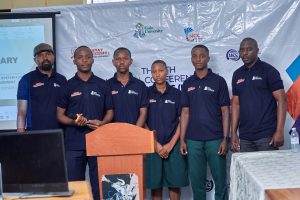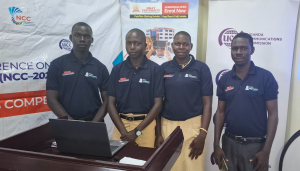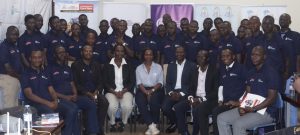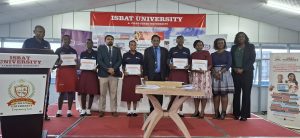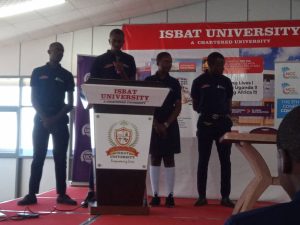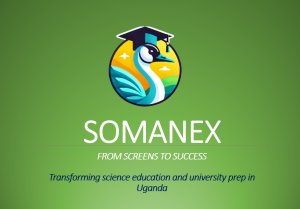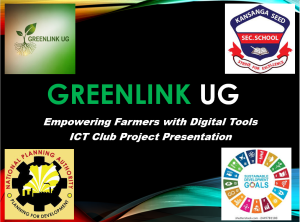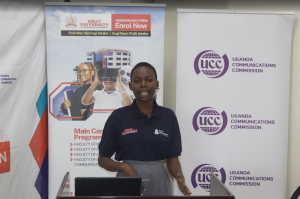Central Region ICT Club Competition
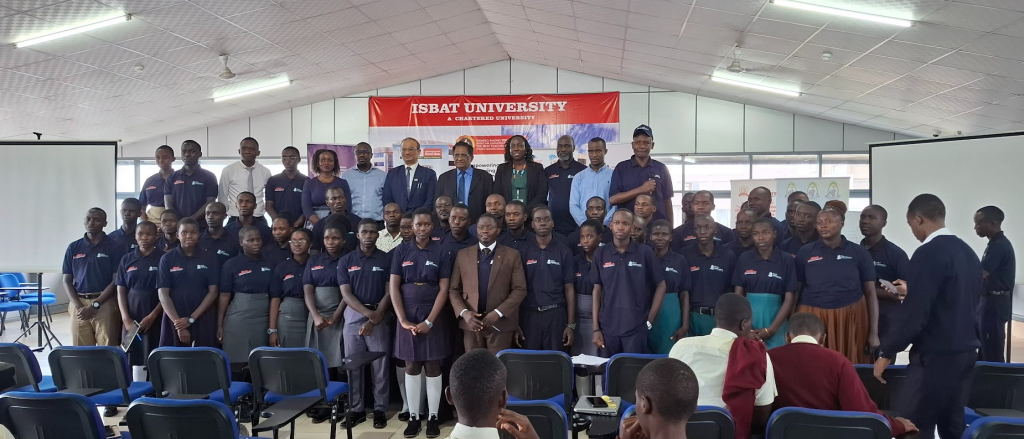
ISBAT University, Kampala – Monday 29th September 2025
The Central Region ICT Club Competition was held at ISBAT University, bringing together top young innovators from across Central Uganda to showcase groundbreaking projects that use digital technology to solve local challenges. The event, organized under the Uganda Communications Commission (UCC) ICT Clubs initiative and coordinated by KAWA Uganda, reflected the growing power of digital creativity in schools and the success of mentorship efforts by partners such as ISBAT University and Gulu University.
The competition featured a wide range of innovative projects spanning health, education, agriculture, environment, and governance. Each team demonstrated strong technical skills, creativity, and teamwork, aligning with the national theme:
“Harnessing Digital Innovation to Empower Sustainable Local Solutions for Uganda’s Development Goals.”
The event was attended by teachers, ICT mentors, UCC representatives, and university staff, who commended the students for their professionalism and community-oriented approach to innovation.
Participating Schools and Their Projects
Trinity College Nabbingo created YOSOIL, a real-time soil testing system powered by sensors and artificial intelligence for smart fertilizer recommendations. The innovation enhances soil fertility management among smallholder farmers in Uganda by providing accurate data on soil health and guiding users on suitable inputs. Using IoT and mobile integration, the system improves decision-making, reduces wastage, and promotes sustainable agricultural practices.
St. Elizabeth Girls’ Secondary School (Mityana) presented The Health Chat Bot, developed by the STEGS ICT Club to tackle the lack of accessible and reliable health information among youth and families in their community. This innovation uses technology to create a virtual assistant that responds to health-related questions in both simple English and Luganda. The Chat Bot provides instant, trustworthy guidance on hygiene, nutrition, mental health, and sexual and reproductive health. It integrates curated content from trusted institutions such as Uganda’s Ministry of Health and the World Health Organization (WHO). Accessible on mobile phones and school computers, it aims to reduce misinformation, promote healthy lifestyles, and empower young people with accurate knowledge. The project also includes training sessions, demonstrations, and competitions to encourage interaction and awareness.
Mt. St. Mary’s College Namagunga from Mukono showcased HydroSentinel – Smart Water Management System, a device that detects and prevents water wastage using IoT technology. The system uses sensors, an ESP32 microcontroller, and a solenoid valve to identify leaks, automatically shut off water flow, and send alerts. Compact, efficient, and user-friendly, HydroSentinel demonstrates how smart technology can improve water conservation, reduce costs, and promote sustainable practices in institutions and homes.
Bombo Army Secondary School (Luweero) developed DigiLearn Uganda, a digital learning platform offering free access to educational materials, ICT tutorials, and e-learning opportunities. It bridges gaps in access to textbooks and digital skills, particularly in rural areas, empowering students to learn independently and enhance their employability.
St. Henry’s College Kitovu (Masaka) presented two strong projects: Agri-Pamoja and SMARTCARE. Agri-Pamoja connects farmers in a digital cooperative where they can share experiences, access markets, and receive expert guidance. SMARTCARE digitizes hospital management by enabling digital record-keeping, patient appointment systems, and prescription management. Both projects showcase how ICT can improve livelihoods and service delivery.
Bishop Cipriano Kihangire Secondary School (Kampala) introduced a School-Based E-Voting System to make student leadership elections more efficient and transparent. The digital system records votes electronically, tallies them instantly, and enhances credibility while exposing students to the democratic process through technology.
Luwero Secondary School designed SOMANEX, a digital science education platform that provides virtual labs and simulations for schools lacking physical laboratories. The tool supports science learning through interactive quizzes and experiments aligned with Uganda’s curriculum, bridging gaps in practical science education.
Mbazzi Riverside High School (Mpigi) presented Jubrah Academy, an online digital library that allows teachers to upload notes, videos, and learning materials for students to access remotely. The platform bridges resource gaps in underfunded schools and promotes independent learning.
Kinyogoga Seed Secondary School (Nakaseke) developed an Electric Power Source using simple, locally available materials such as a bicycle wheel and dynamo. This low-cost, sustainable energy solution provides light and power for rural communities, reducing dependence on unreliable or expensive electricity sources.
Sekanyonyi Secondary School (Mityana) showcased a Drug Awareness App and Website, an educational platform that raises awareness about the dangers of drug and substance abuse among youth. The project uses multimedia tools, stories, and interactive sessions to promote healthy living and informed decision-making.
Kansanga Seed Secondary School (Kampala) presented Transforming Agriculture Through Automated Greenhouse Farming, an innovation that integrates sensors, automated irrigation, and temperature regulation systems to support climate-smart farming. The system ensures year-round production and promotes food security.
Koja Secondary School (Buikwe) developed AgriLink – An All-in-One Digital Platform for Plant, Animal, and Poultry Farming. This platform connects farmers with experts, provides information on market prices, and offers guidance on crop and livestock management. By integrating all farming sectors, it supports Uganda’s agricultural modernization agenda.
Kibuli Secondary School (Kampala) showcased an Innovative ICT Project Series featuring student-led ideas such as educational apps, awareness campaigns, and digital platforms addressing community challenges. The school’s approach promotes experimentation and a culture of innovation.
Mumsa High School (Mityana) introduced Insight Hub, a digital academic collaboration platform that allows students to post questions, share notes, and get academic support. The project fosters peer learning, teamwork, and inclusive access to study resources.
Ndeeba Secondary School (Kayunga) developed Enhancing Healthy Eating Habits Through Nutritional Education and Feeding Practices, an initiative that promotes balanced diets and school gardens using locally available foods. The project links nutrition awareness to academic performance and community wellbeing.
Namagabi Secondary School (Kayunga) presented Community ICT Innovation, a flexible project model that encourages students to design simple apps and digital systems solving local problems such as farming management and record keeping. The project promotes problem-solving skills and community empowerment through technology.
St. Charles Lwanga Secondary School, Kasasa (Kalungu) introduced an Environmental Awareness Website that educates the community about conservation, climate change, and pollution control. The website encourages environmental activism and mobilizes students for tree planting and awareness campaigns.
And the Winners Are…
🥇 1st Place – Trinity College Nabbingo – YOSOIL: A Real-Time Soil Testing System Powered by Sensors and Artificial Intelligence
🥈 2nd Place – Mt. St. Mary’s College Namagunga – HydroSentinel: Smart Water Management System
🥉 3rd Place – St. Elizabeth Girls’ Secondary School, Mityana – Health Chat Bot by STEGS ICT Club
The judges praised the top three projects for their high level of innovation, technical precision, and social impact. Each of the winning schools demonstrated a strong understanding of how ICT can provide practical solutions to national challenges.
The Road to NCC 2025
The winning teams from the Central Region will represent their schools at the National ICT Clubs Competition Finals during the National Conference on Communications (NCC 2025), scheduled for 2nd–3rd October 2025 at the National ICT Innovation Hub, UICT Nakawa.
This year’s national event, co-hosted by ISBAT University and Gulu University, will bring together Uganda’s brightest young innovators to share ideas and present their solutions under the theme:
“Harnessing Digital Innovation to Empower Sustainable Local Solutions for Uganda’s Development Goals.”
The Central Region ICT Club Competition not only highlighted innovation and teamwork but also reaffirmed that Uganda’s secondary schools are becoming vibrant centers of digital creativity. These young innovators are proof that with mentorship, exposure, and the right support, the future of Uganda’s digital transformation is already unfolding—student by student, school by school, region by region.

